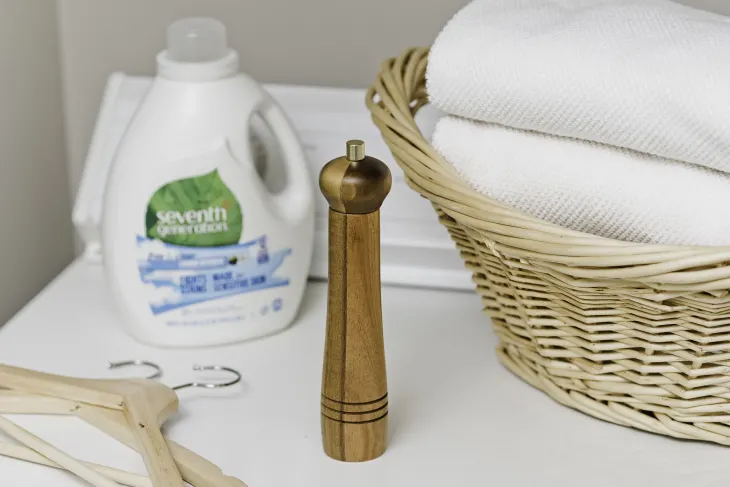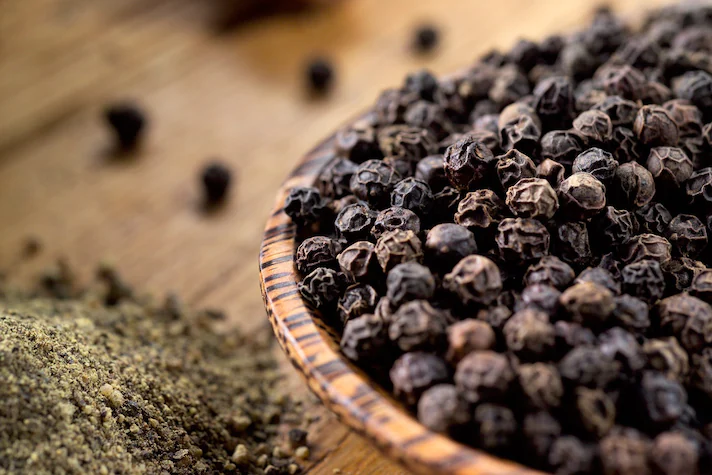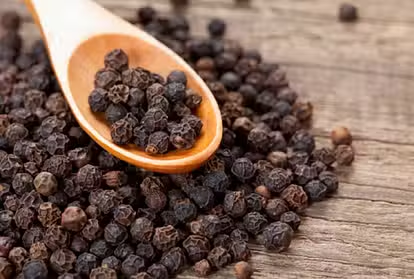Household tips passed down through generations often leave us scratching our heads. One of the most curious traditions I inherited from my grandma is her insistence on adding black pepper to laundry. At first, it seemed absurd—why on earth would you toss a pinch of spice into the wash? But like many old-school hacks, it left me wondering: could there be some logic behind this practice? Let’s unravel the mystery of pepper in laundry, exploring its history, possible benefits, and whether it holds up under scrutiny.

Historical Practices: Unconventional Laundry Additives
Back in the day, people relied on creativity and resourcefulness to tackle chores like laundry. Without modern detergents or fabric softeners, households often turned to common pantry staples. Vinegar, baking soda, lemon juice, and even black pepper were among the surprising ingredients that made their way into wash routines.
Pepper, in particular, is thought to have been used as a color-preserving agent. While there’s little documentation on when or why this practice began, it likely stemmed from a time when maintaining clothing was paramount. Families looked for simple ways to prolong fabric life, and pepper may have been a go-to solution for keeping colors vibrant.
The Science Behind Pepper in Laundry
So, what’s the theory? Adding pepper to your laundry supposedly helps maintain the vibrancy of clothes. How? It’s believed that the fine granules act as a mild abrasive, scrubbing away detergent residue that can dull fabrics over time. Additionally, pepper is thought to help set colors, reducing the fading that comes from repeated washes.
While these ideas sound plausible, scientific evidence supporting pepper’s effectiveness in laundry is sparse. The concept hinges on its physical properties, with the granules working mechanically rather than chemically. Although this explanation is intriguing, it remains more of a hypothesis than a proven fact.
Common Household Ingredients in Laundry: How Does Pepper Compare?
Many natural additives have earned their place in laundry routines for their proven benefits:
- White Vinegar: Known for softening fabrics, removing odors, and preventing detergent buildup.
- Baking Soda: A versatile deodorizer and stain remover.
- Lemon Juice: Acts as a natural bleach, brightening whites and tackling tough stains.
- Salt: Helps lock in fabric dye, reducing color bleeding.
Compared to these staples, pepper is a less obvious choice. While it may assist in preventing color fading, its effectiveness doesn’t measure up to the tried-and-true results of these other additives. However, it still sparks curiosity for those seeking unconventional solutions.
Does Pepper Really Work? Anecdotal Evidence and Expert Opinions
Ask around, and you’ll find a mix of opinions. Some enthusiasts swear by the subtle difference pepper makes, claiming their dark clothes stay richer in color for longer. Others dismiss it as an old wives’ tale, with no noticeable impact on their laundry results.
Fabric care experts tend to be skeptical. They highlight the lack of concrete evidence backing pepper’s laundry benefits, suggesting it’s more of a placebo than a practical solution. That said, pepper isn’t harmful, and the effort involved is minimal. If you’re curious, it’s worth experimenting to see if it works for you.
Potential Risks and Considerations of Using Pepper in Laundry

Before you sprinkle pepper into your next wash cycle, consider a few potential downsides:
- Abrasion: While mild, the abrasive nature of pepper granules could cause slight wear on delicate fabrics over time.
- Residue: Failing to rinse thoroughly might leave pepper traces on clothing, which could irritate sensitive skin.
- Allergies: If you or someone in your household has an allergy to black pepper, avoid introducing it into your laundry routine.
Ultimately, pepper is safe for most laundry applications, but it’s wise to use it sparingly and monitor for any adverse effects.
Alternative Natural Additives for Laundry
If you’re looking for reliable, natural solutions to improve your laundry game, consider these well-researched options:
- White Vinegar: Add a cup to the rinse cycle to neutralize odors, soften fabrics, and prevent detergent buildup.
- Baking Soda: Mix half a cup with detergent to boost stain removal and deodorize clothes.
- Lemon Juice: Use for brightening whites or tackling stubborn stains on light-colored fabrics.
- Essential Oils: A few drops of lavender or tea tree oil can add a pleasant scent while offering antibacterial properties.
- Borax: An excellent addition for softening water, improving detergent performance, and tackling tough stains.

These alternatives have stood the test of time and provide tangible benefits for laundry care, often outshining pepper in terms of practicality and results.
Conclusion: Is Pepper Worth Adding to Your Laundry?
The idea of adding pepper to laundry may sound quirky, but it’s rooted in a tradition of creative problem-solving. While the science behind its effectiveness remains unproven, it’s an intriguing concept that has sparked curiosity for decades. If you’re open to experimenting, pepper is unlikely to harm your clothes and might provide subtle color-preserving benefits.
However, for more consistent results, tried-and-true natural additives like vinegar, baking soda, and lemon juice are your best bet. They offer a wealth of benefits backed by research and practical use.
So, whether you embrace pepper or stick to the classics, laundry remains an art as much as a science. And sometimes, the charm of a nostalgic trick like grandma’s pepper hack is reason enough to give it a try. After all, the best practices are the ones that work for you.


